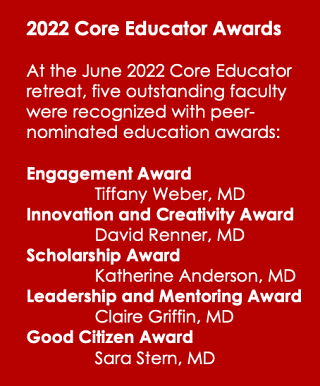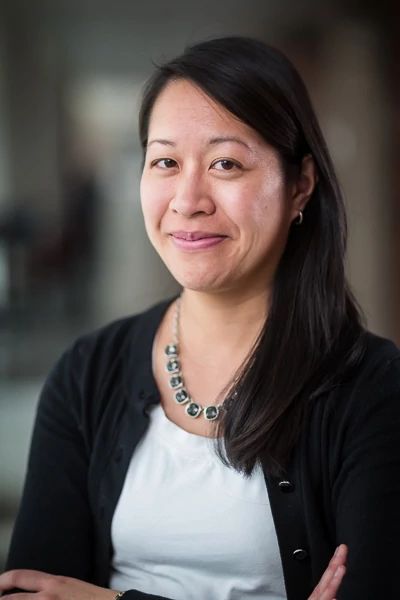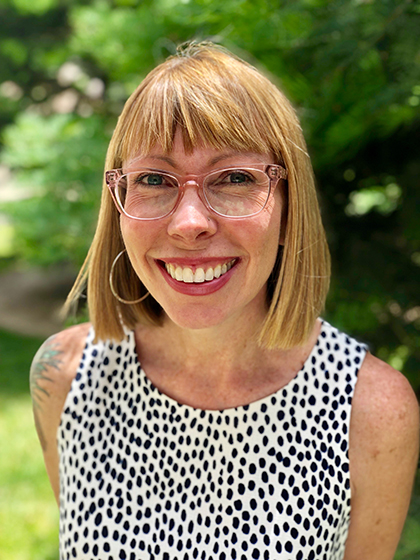Voices of U of U Health
Elevating Educator Well-Being
Medical educators are feeling the effects of sustained disruption in the clinical learning environment caused by the COVID-19 pandemic and increased cognitive and emotional load. For the first time in more than two years, faculty and staff from the Spencer Fox Eccles School of Medicine gathered in person for the biannual Core Educator Retreat. It was a chance to connect as a community of educators while engaging in critical discussions about elevating their own well-being—at a systemic and individual level.
Organizational Steps to Support Medical Educators
The retreat explored national and local data about educator well-being. Key findings and recommendations for supporting medical educators were shared from the American Medical Association’s Accelerating Change in Medical Education Consortium. The University of Utah has been a member of the consortium since 2016.
Appropriately, well-being efforts focus on learners and health care providers. But, as the consortium points out, supporting the unique and diverse needs of educators is often neglected. “This is not an issue of individual resilience,” they reported. “Health care organizations and educational institutions must take action to avoid mass abandonment of educational duties and loss of educational leaders.”
To aid this effort, the consortium is developing an Educator Well-Being Guide (scheduled for release in winter 2022) to offer concrete, system-based solutions to support the medical education mission by improving educator well-being.
Responding to Climate Survey
At a local level, our medical school recently conducted a climate survey to collect feedback about the learning environment from core educators, other MD program educators, course coordinators and managers, and graduating students. Faculty and student respondents indicate the MD program engages them as meaningful participants. It provides a sense of belonging and cultivates meaningful relationships with, and inspires mentors for, students.
However, course coordinators and managers—whose work contributes immensely to educator well-being—indicate they do not experience the same level of engagement and sense of community. A majority of educator, staff, and student respondents do not feel they had a say in decision-making about MD program curriculum changes. Nor did they feel free to question decisions or actions regarding these changes.
With this critical feedback in mind, core educators gathered in small groups to discuss factors that contribute to, or detract from, well-being in the learning environment. Using the four-frame model (structural, human resources, political, and symbolic), groups made recommendations that will be used to inform an educator well-being plan for the medical school.

Individual Steps to Support Educator Well-Being
Medical educators are part of a larger professional culture of perfectionism, lack of vulnerability, and low self-compassion. Physicians overwork themselves, imply that normal human limitations do not apply to them, and often assume the role of a hero. Although we encourage prevention, self-care, and personal behaviors to promote health for our patients, we often do not engage in these behaviors ourselves.
Core educators reflected on their sources of stress and joy. They discussed practical steps for improving their well-being, like setting boundaries (“self-care is not selfish”), striving for mediocrity (“good enough”), connecting with others (“invest instead of divest”), and expressing gratitude. Attendees were encouraged to participate in a gratitude challenge by identifying three things from the last 24 hours for which they are grateful and writing them down or sharing them with someone else for 21 consecutive days.


Epiphanies and Catharsis
Throughout the retreat, core educators were invited to jot down epiphanies or inspiring thoughts and put them in the “Epiphanies Box” to be shared at the end of the day. Those epiphanies included:
- You can observe a lot by watching. Our peers have a lot of insight and support to offer if we give them a chance.
- Though we created the system we currently work in, we can recreate a better one.
- I am not the only one who is tired.
- It is refreshing to see people in real life.
- It is OK to truly take time off from work.
- Thanking is different than acknowledging. Thanking people for working harder than expected is different than acknowledging the excessive demands placed by the system in the first place.
- Be vocal! Likely other people are thinking the same and want change.
- I have amazing colleagues—we need more opportunities to engage with one another.
- I will set boundaries at work and quit doing other people’s jobs. I will strive to be perfectly mediocre and eat lunch outside. No more working lunches.
In a cathartic exercise, attendees were also invited to jot down a frustration or challenge that they wanted to let go of and deposit those in the “Burn Box” to be released/incinerated at the end of the day. Post-retreat survey results show 93 percent of attendees felt the retreat helped them connect with other core educators and inspired them in their work.
Opportunity to Change
We have an opportunity to change the culture of medicine through our faculty and as we educate future physicians. Moving forward, our medical education program will place added emphasis on relationships. While we can take steps as individuals and groups to make our own experience better, we can only take that so far on our own.
We need to be part of a system that supports well-being. Organizations exist to meet the needs of people. Designing an exceptional learning experience includes all of us—faculty, students, and staff. If we’re intentional about it, this is an opportunity to meet everyone’s needs.


